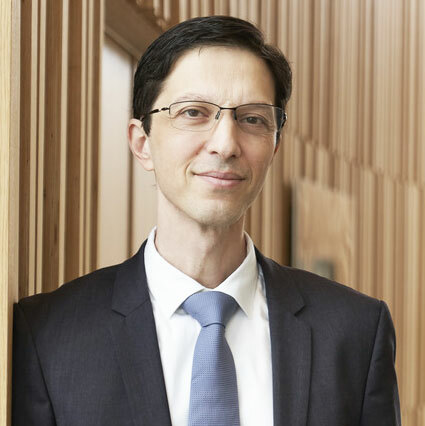Psychedelics
Novo Nordisk drops two programs as it plots Wegovy comeback
Two Novo Nordisk programs in obesity and cardiovascular disease are on the chopping block, the company buried in its Q3 report, as CEO Lars Fruergaard…

Two Novo Nordisk programs in obesity and cardiovascular disease are on the chopping block, the company buried in its Q3 report, as CEO Lars Fruergaard Jørgensen plots a comeback in obesity.
The chief executive is shutting down a Phase I obesity program dubbed LA-GDF15 and a PCSK9 inhibitor that just completed a Phase II trial in patients with or at risk of developing atherosclerotic cardiovascular disease (ASCVD) due to “portfolio considerations,” he said in the Q3 report.
The oral PCSK9 inhibitor met its primary endpoint by demonstrating superiority versus placebo in lowering LDL-C, also known as “bad cholesterol,” and “appeared to have a safe and well tolerated profile,” executive VP and head of development Martin Holst Lange said on a Q3 investor call before it was cut short due to technical issues.
“However, due to commercial and portfolio considerations, the development of oral PCSK9 will be terminated,” he added.
While the first generation of PCSK9 blockers proved they could lower bad cholesterol and prevent certain heart conditions, high cost and biweekly injections left some patients wary. A suite of competitors has since kicked off a multibillion-dollar search for options with more convenient dosing, and if approved, Novo’s oral candidate would have faced stiff opposition from not only Sanofi and Regeneron’s original Praluent, but also Novartis’ Leqvio and other next-gen rivals angling for a piece of the market.
As for LA-GDF15, Novo Nordisk said in its Q3 release:
In September 2022, Novo Nordisk successfully completed a phase 1 trial evaluating pharmacokinetics and pharmacodynamics of LA-GDF15. Following the completion of the trial, development of LA-GDF15 has been terminated due to portfolio considerations.
Novo Nordisk is the latest in a string of companies to abandon GDF15, a protein that became an obesity target after an immunologist found high quantities of it among cancer patients who lost weight more than a decade ago. Amgen shelved its own program earlier this year after it was deemed ineffective in a 60-person trial, and Eli Lilly quietly shut down a program last year. Merck similarly pulled out of a GDF15 partnership with NGM Biopharmaceuticals.
The news comes as Jørgensen plans a Q4 rebound for Wegovy, its weight loss drug that met “unprecedented demand” on top of manufacturing issues last year. In December, Novo said it didn’t expect to meet demand until the second half of 2022. Now the company promises that all dose strengths will become available by the end of the year. According to the label, Wegovy comes in pre-filled single-dose pens containing 0.25 mg, 0.5 mg, 1 mg, 1.7 mg or 2.4 mg doses. For now, the 1.7 mg and 2.4 mg doses are currently available.
Wegovy contains the same medication, semaglutide, as Novo’s type 2 diabetes drug Ozempic, just at a higher dose. It was approved as a once-weekly injection for chronic weight management in adults last June. Sales were up 91% in Danish kroner last quarter, coming in at about 1.15 billion DKK, or about $152 million.
 Karsten Munk Knudsen
Karsten Munk Knudsen“We are gradually increasing our supply capacity and expect this to be sufficient to support a potential continuation of the current sales growth trajectory,” executive VP and CFO Karsten Munk Knudsen said of GLP-1 products in general.
As Wegovy is in short supply, Jørgensen said the company’s previously approved obesity drug Saxenda is “doing really, really well.”
“Where we don’t have Wegovy, we can sustain the growth with Saxenda, and then obviously as we get Wegovy back towards the end of this year in the US and … start launching outside the US, we expect to see a very nice uptake on that,” Jørgensen said.
Overall sales were up 28% last quarter, totaling nearly 45.6 billion DKK, or about $6 billion. The company’s stock $NVO was up more than 7.5% on Wednesday afternoon, pricing around $114.55 per share.
ket biopharmaceuticals
-

 Psychedelics6 days ago
Psychedelics6 days agoExploring Psilocybin’s Potential in Diabetes Management
-

 Psychedelics6 days ago
Psychedelics6 days agoAll About the New Ketamine Trial at the University of Otago
-

 Psychedelics1 week ago
Psychedelics1 week agoCybin to Present at the 2024 Bloom Burton & Co. Healthcare Investor Conference
-
Law & Regulation1 week ago
Canada’s Optimi Health to ship psilocybin to New Zealand psychedelics research center
-

 Law & Regulation1 week ago
Law & Regulation1 week agoSynaptogenix increases psilocybin stake with PsygaBio
-

 Psychedelics6 days ago
Psychedelics6 days agoThe EU’s Plan for a €6.5M Study of Psychedelics To Treat Mental Disorders
-

 Psychedelics6 days ago
Psychedelics6 days agoExploring Psilocybin’s Potential in Diabetes Management
-

 Psychedelics6 days ago
Psychedelics6 days agoThe EU’s Plan for a €6.5M Study of Psychedelics To Treat Mental Disorders










